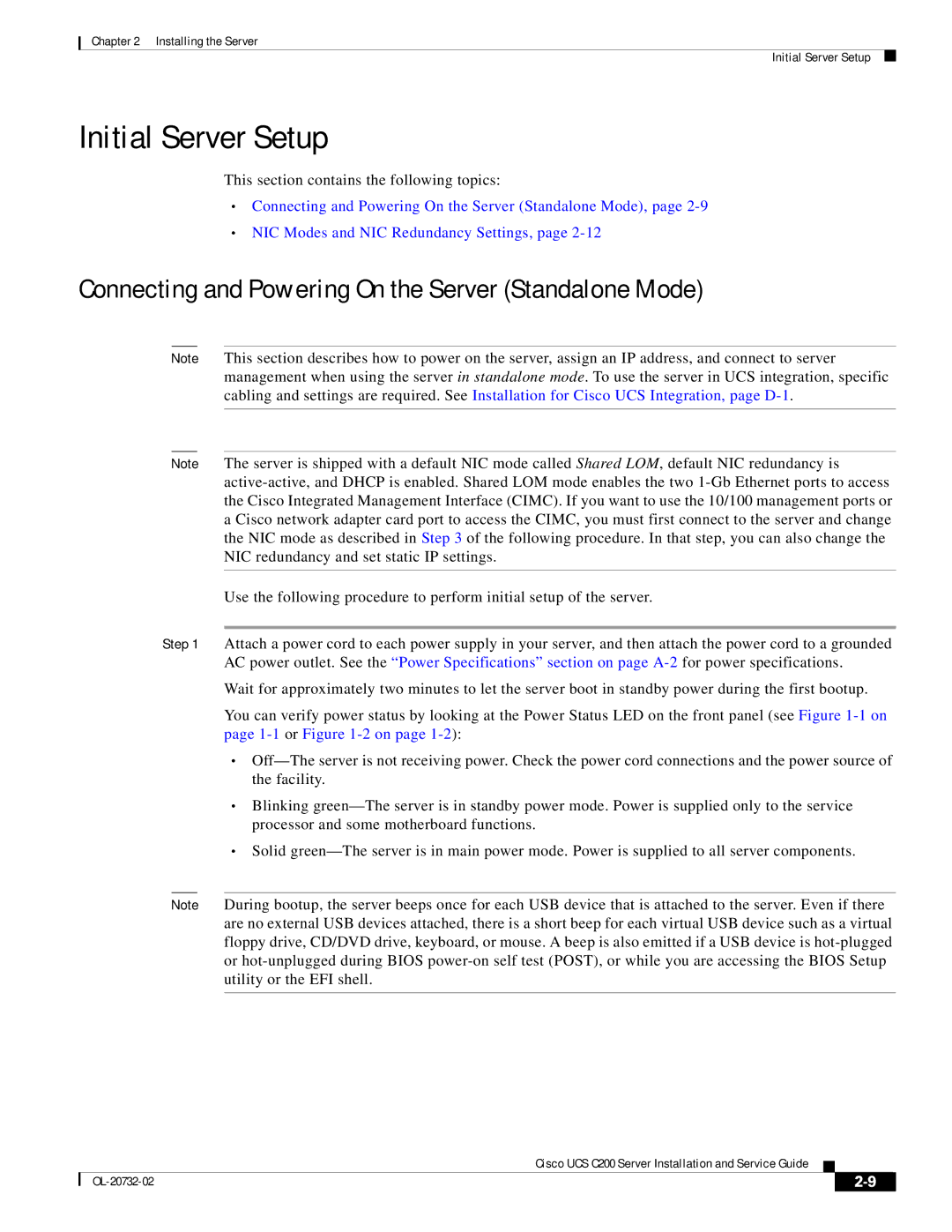
Chapter 2 Installing the Server
Initial Server Setup
Initial Server Setup
This section contains the following topics:
•Connecting and Powering On the Server (Standalone Mode), page
•NIC Modes and NIC Redundancy Settings, page
Connecting and Powering On the Server (Standalone Mode)
Note This section describes how to power on the server, assign an IP address, and connect to server management when using the server in standalone mode. To use the server in UCS integration, specific cabling and settings are required. See Installation for Cisco UCS Integration, page
Note The server is shipped with a default NIC mode called Shared LOM, default NIC redundancy is
Use the following procedure to perform initial setup of the server.
Step 1 Attach a power cord to each power supply in your server, and then attach the power cord to a grounded AC power outlet. See the “Power Specifications” section on page
Wait for approximately two minutes to let the server boot in standby power during the first bootup.
You can verify power status by looking at the Power Status LED on the front panel (see Figure
•
•Blinking
•Solid
Note During bootup, the server beeps once for each USB device that is attached to the server. Even if there are no external USB devices attached, there is a short beep for each virtual USB device such as a virtual floppy drive, CD/DVD drive, keyboard, or mouse. A beep is also emitted if a USB device is
Cisco UCS C200 Server Installation and Service Guide
|
| ||
|
|
